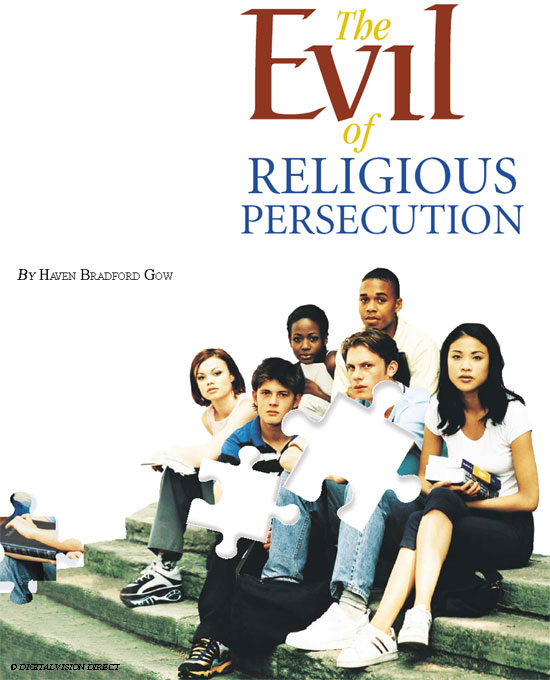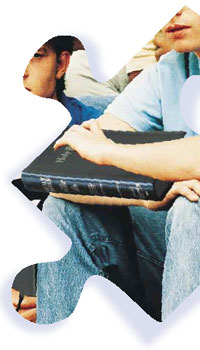The Evil of Religious Persecution
Haven Bradford Gow January/February 2005
Getting your Trinity Audio player ready...

A new report from the U.S. State Department reveals that religious persecution around the world is alive and well. The report says Christians routinely are kidnapped, imprisoned, raped, tortured, and even murdered in such nations as China, Cuba, and North Korea.
As articles in the February 15-21, 2004, National Catholic Register pointed out, government officials and agents in Vietnam persecute, jail, and murder Christians. The same kind of religious persecution happens in China, Cuba, and North Korea, as well as in Middle Eastern countries such as Iran.

Moreover, "Israel came in for criticism for discrimination against non-Jews in education, housing, employment and social services. Christians and even conservative jews were victims of harassment, threats and vandalism directed against their buildings and other facilities."
Back in the United States religious persecution also is alive and well. Although this nation was founded upon Judeo-Chris-tian moral and religious values and standards, many now insist that Christians today are being treated as second-class citizens.
In their work Christianity on Trial (Encounter Books), Vincent Carroll, editor of the editorial pages of Rocky Mountain News, Denver, Colorado, and David Shiflett, a freelance writer, observe that "Christianity inhabits a strange place in American life. It is by far the predominant religion in the most religious country in the industrialized world, with more than 90 percent of its citizens professing belief in God and a large majority claiming allegiance to a Christian denomination or sect." At the same time, though, "Christians are regularly targeted for ridicule and vilification by a significant portion of America's cultural elite, a situation all the more striking in view of the prevailing hypersensitivity toward other religious, ethnic and lifestyle groups."
Tony Perkins, president of the Family Research Council, provides these examples of anti-Christian bigotry that threaten our religious freedom: "In Kentucky, the ACLU filed challenges to Ten Commandments displays in Mercy and McCreary counties. In Utah, the ACLU launched a [search] for more than a dozen Ten Commandments displays across the state, . . . and [then]took legal action to have them all removed." In Tennessee, the ACLU pressured government officials in Hamilton County to remove three Ten Commandments displays from public property.

Harrison's parents contacted the Alliance Defense Fund, a coalition of attorneys dedicated to defending the religious freedom rights of Americans, which in turn wrote to the superintendent of schools. The school superintendent ordered that Harrison be allowed to resume reading the Bible.
Is there a place for God, religion, prayer, and Bible-reading in the public schools? This has become a hot topic because of outbreaks of school crime, violence, and disorder. Supporters of school prayer insist that when God, religion, prayer, and Bible reading were removed from the schools, the doors were left wide open for drugs, crime, violence, vandalism, and immoral sexual activity to enter.
According to the American Center for Law and Justice, Americans, including school-age children, need to know they possess God-given constitutional rights to religious freedom and religious activity and speech. Indeed, speaking for the majority in the 1981 Widmar v. Vincent U.S. Supreme Court case, the late Justice Lewis Powell pointed out that religious speech by students is a form of freedom of speech. For example:
- Religious students have the right to share their faith on school premises by distributing literature and telling others about their faith while at school.
- Religious students have the right to wear T-shirts with religious messages, buttons, and other symbols on school property.
- Religious students have the right to have Bible clubs on campus.
- Religious students have the right to participate in voluntary prayer at school and to offer prayers as valedictorians, salutatorians, and class presidents during graduation exercises.
- Religious students have the right to participate in community-, church-, or school-sponsored baccalaureate services.
- Religious students have the right to present homework, artwork, and other school projects from a faith-based perspective.
- Religious students have the right to study and observe Christmas and Easter holidays on school premises.
The Founders intended the First Amendment not to insulate society or the state from the influence of religion, but, rather, to preserve and protect religious freedom from transgressions by the state. They understood that a society's public morality depends upon a religious foundation, and that the wholesome influence of religion on private and public morality is essential to the survival of a free and civilized society. Consequently, they wanted government to champion and defend religion and religious freedom.
___________________________
Haven Bradford Gow is a TV and radio
commentator and writer who teaches religion to children at Sacred Heart Catholic Church, Greenville, Mississippi.
___________________________